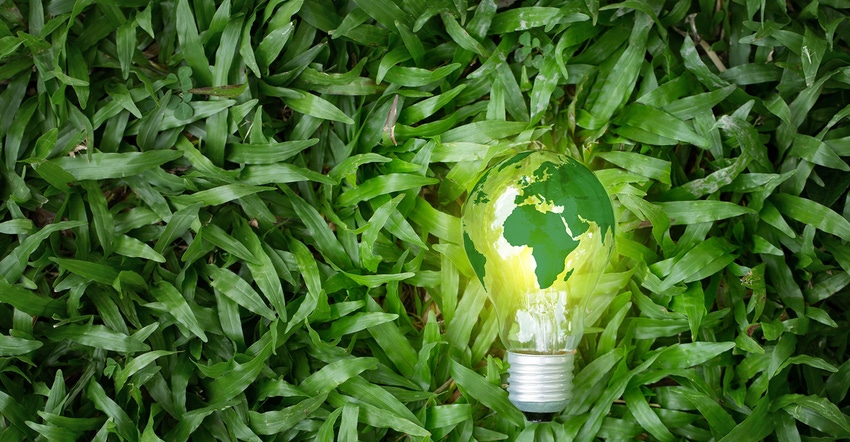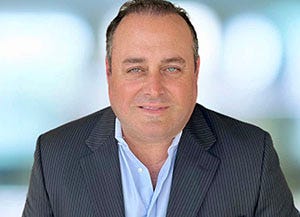Bioplastics Startup Verde Takes ‘Disruptive’ Path to Circular Economy
The developer of biodegradable PolyEarthylene resins goes public via SPAC, inks deals with Braskem and Vinmar.
August 24, 2023

Verde Bioresins, a California bioplastics startup, is aiming to change the circularity game with its novel range of biodegradable PolyEarthylene resins. The new resins hit the market in April, and Verde is already expecting to “substantially increase” sales volume and capacity in the fourth quarter of this year.
Founded in 2020, Verde is “a full-service bioplastics company specializing in sustainable materials, innovation, and state-of-the-art manufacturing with its proprietary, and potentially industry-disrupting, bio-based, renewable, and sustainable PolyEarthylene resin,” explained President and COO Brian D. Gordon.
“PolyEarthylene aims to accelerate the transition to a more sustainable and circular economy, addressing nearly half of the $600 billion global plastics market that is faced with mounting regulatory pressure for eco-friendly solutions. Our proprietary technology converts sustainable plant-based materials into a portfolio of PolyEarthylene biopolymers — each tailored to achieve a specific set of physical and mechanical performance goals.”
Verde’s bio-based, landfill-biodegradable resins are, for the most part, curbside recyclable, Gordon noted. Other bio-based resins (nylons and elastomers) on the market “do not focus on some of the other important factors. Verde’s focus is replacement of traditional polyethylene and polypropylene “for most, if not all, general applications.”
PolyEarthylene resins “can be designed to decompose on a highly accelerated basis due to the action of naturally occurring micro-organisms, such as fungi and bacteria, providing Verde with a true end-of-life solution,” Gordon explained.
Going public, finding partners
With headquarters in Los Angeles and a manufacturing facility in Fullerton, CA, Verde was taken public by an SPAC (special-purpose acquisitions company) called TLGY Acquisition Corp. and will trade on NASDAQ under the ticker symbol VRDE.
An SPAC is a publicly traded corporation, an increasingly popular alternative to traditional IPOs. With a two-year lifespan, an SPAC merges or combines with a privately held business to enable it to go public, raising money largely from public-equity investors and potentially removing risk from the IPO process. SPACs have surged in the United States in the past two years, according to the Harvard Business Review. In 2019, 59 SPACs were created, with $13 billion invested; in 2020, 247 were created, with $80 billion invested. And in the first quarter of 2021, 295 SPACs were created with $96 billion invested.
|
Verde President and COO Brian Gordon. |
“It is a pleasure to work with top-notch operators at TLGY that understand Verde's positioning in the market and the impact PolyEarthylene can have on the market and the world,” Gordon enthused. “Once public, Verde Bioresins Corp. will provide us with better access to the capital markets and will enable us to better attract and retain great talent.”
In fact, Verde announced deals with Braskem and Vinmar in June.
“We are very fortunate to work with leading companies that have prioritized sustainability as a significant part of their business,” Gordon said. “These world-class partners are committed to helping Verde extend the market for sustainable products and doing well by doing good. Braskem is helping us to expand our offerings and the quality of our products, and Vinmar is enabling us to reach markets that would otherwise take years to penetrate.”
Aggressive growth plan
Verde has hit the ground running, Gordon explained, by working directly with companies in shipping, beauty and personal care, consumer products, agriculture, electronics, merchandising, clothing, trash and resealable bags, and food and beverage packaging — from single-use straws to silverware and cups.
“Verde is working with dozens of other companies through our incredible distribution partnership with Vinmar Polymers America and Vinmar International. We do a lot of the initial work in-house in our research and development labs and with conversion equipment. Following successful lab size trials, we work with some of the largest converters in the United States to perform volume trials to ensure our products are drop-in ready. We have primarily focused our volume trials with some of the largest blown-film converters, sheet extruders, and thermoformers. We have also done extensive injection molding and blow molding trials.”
Already, he added, several large blown-film converters have run tens of thousands of bags — draw string, reusable handle, and T-shirt bags with seals — including full-color printing with 80% coverage.
“Multiple large sheet extrusion houses have extruded sheets and formed them into various items for their current customers wishing to have a sustainable, recyclable, and biodegradable option. Their mechanical and physical performance characteristics, cycle times, and waste have been similar to traditional polyethylene.”
PolyEarthylene comes in standard grades to replace general HDPE, LDPE, LLDPE, and PP.
“Depending on the size of the application, we can custom formulate to achieve the physical and mechanical properties needed for our customer's application. In terms of novel applications, our PolyEarthylene resins can make injection molded bottles with life hinges; thermoform applications for refrigerated, freezer or even microwavable applications; and we can make resins that have antistatic or electrostatic dissipative properties for the electronics industry.” Furthermore, Verde is perfecting its coatings on paper and extruded foam applications.
Addressing the broader issues confronting the plastics industry, Verde is a member of the Alternative Fuels and Chemicals Coalition; Gordon speaks at their annual event.
As Verde’s resources grow “and our resources grow with us, we will look to expand our advocacy efforts. At Verde we believe in reusing, recycling, and landfill biodegradation in that order, since in the United States roughly 5% to 6% of plastic is ever recycled, 85% ends up in landfills, and the remaining approximately 10% is burned.
“There is no single solution, as the plastics market is in excess of 800 billion pounds a year. Recycling and bio-based, biodegradable resins are part of the solution. There is plenty of room in the renewable and sustainable space, and we applaud all bio-based alternatives. However, legislation can and often does lead to unintended consequences like greenwashing. We want to make sure that legislation focuses on doing the right thing for the environment rather than just doing something.”
About the Author(s)
You May Also Like



